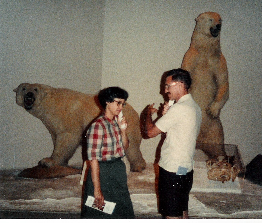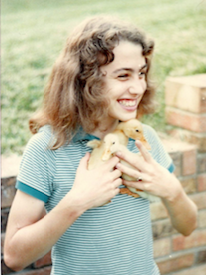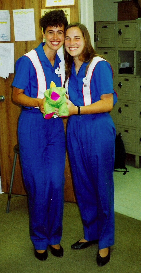Frequently Asked Questions about Fred
1. Why did you write Fred?
I wrote Fred for 3 reasons:
- To communicate how it feels to have OCD. Ninety percent of OCD (and its close cousin, body dysmorphic disorder, or BDD) is invisible to others. My stories illustrate how having the disorder is akin to being held hostage, the barrel of a gun slammed into your temple, day after day, week after week, month after month.
“Her writing cuts to the quick when describing the suffering that lies beneath the exterior that others see.”
—Joan Davidson, PhD, author of Daring to Challenge OCD
- To share hope that you can reclaim your life from OCD and BDD. According to the International OCD Foundation, it takes sufferers 14-17 years on average from onset of OCD symptoms before they receive the right treatment, exposure and response prevention therapy. It took me twice that long. Further, once someone starts treatment, it can take months or years to recover from the devastation of the disorder. But regardless of the treatment detours people with OCD experience, I want them to never, ever give up, because they, like me, can get better.
“Everyone with OCD will be able to see themselves in her struggles,
and her journey will provide them with the hope that the road to recovery is one that they, like her, can travel.”
—Jonathan Grayson, PhD, author of Freedom from Obsessive-Compulsive Disorder
- To tell a good story. I love page turners—mystery and suspense novels that keep me guessing and on the edge of my seat—so that’s what I wanted to write. My life has been somewhat of a wild ride (literally at times—just ask my spirited Arabian horse, Lee, who features prominently in my life and in Fred), so I had lots of good material to work with. I hope readers will enjoy it and pick up some new insights about OCD and BDD along the way.
“Shala has crafted a masterpiece detailing the suffering and pain associated with OCD.”
—Eric Storch, PhD, McIngvale Presidential Endowed Chair & Professor, Baylor College of Medicine
“An amazing story of terror and resilience. Fred is … a gripping portrayal of an unrelenting disorder.”
—Randy O. Frost, PhD, coauthor of the New York Times bestseller Stuff: Compulsive Hoarding and the Meaning of Things
2. What kind of OCD do you have?
My OCD will be irritated by this answer (which is great, since I strive to annoy it!), but I have quite average, run-of-the-mill OCD. It is not extraordinary by any stretch of the imagination (although it thinks it is). Since I had it for ~35 years before I received the appropriate treatment, I’ve had almost every kind of OCD content imaginable, including obsessions about harm coming to myself and others, sexual themes, “just right” concerns, existential issues, scrupulosity, you name it.
“Shala beautifully details how mental illness shaped her life,
taking us with her on her brave journey through perfectionism, shame and fear.”
—Kimberley Quinlan, LMFT and founder of CBTschool.com
3. There are lots of OCD memoirs out there. What makes Fred different?
I am thrilled that we now have so many memoirs available about OCD, as every one of them will empower people to get the help they need faster and more effectively than they could have in the past, when few books about the experience of OCD were available.
Fred is unique in several ways that will hopefully help people like me become skilled monster-tamers:
- I have OCD and BDD, and Fred illustrates my experience with and how I manage both on a day-to-day basis.
- Fred is also a story of turning personal adversity into advocacy for others, as it chronicles my experience becoming a therapist treating people who have OCD, BDD, and/or other anxiety and OCD-related disorders.
- Fred is a combination memoir and self-help guide, with an Afterword by Reid Wilson, PhD, one of the world’s leading OCD experts, offering powerful guidance for applying my strategies in daily life.
“Many excellent books have been written about OCD. Some promote compassion by articulating the challenges of a life tormented by this condition.
Others inspire as they chronicle the struggle to recover. Some educate about treatments that can change lives and others bridge resources to those in need.
Is Fred in the Refrigerator? does it all.”
—C. Alec Pollard, PhD, founding director, Center for OCD & Anxiety-Related Disorders
4. Is the book different than the keynote you gave at the IOCDF conference in 2013?

Chapter 11: Changing the OCD Mind. My parents in the Smithsonian Museum of Natural History, just steps away from where, 25 years later, I would successfully defeat my OCD for the very first time.
It is quite different, in no small part because the keynote was five years ago, and Part III of the book is mostly about my experience in recovery since that time. (In Part III, you’ll also get a front-row seat to what my OCD did to me the night before the keynote—it was in rare form). The later chapters in Fred are the stories of how I learned each of my monster-taming tools, many of which are counterintuitive. And of course, there are oodles of details in Parts I and II not included in the keynote that my OCD is not very pleased that I’ve shared.
“You will not win over the disorder by going toe-to-toe with OCD in a battle over its frightening logic. You must work paradoxically. Is Fred in the Refrigerator? is brilliantly alive with this paradoxical strategy.
Use Shala’s memoir as your empowering inspiration.”
—Reid Wilson, PhD, author of Stopping the Noise in Your Head
5. You tamed your OCD—can I do the same?
I’ll let Reid answer from his Afterword: “Can you tame OCD? Bet your life on it. That’s why Shala wrote this book.”
Is Fred in the Refrigerator?: Taming OCD and Reclaiming My Life is available for purchase on Amazon.com. Photographs in the top banner by Sabrina Fattal Photography.



